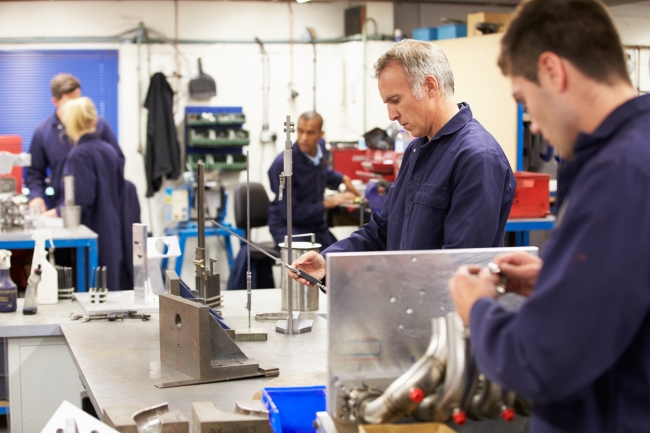4 minute read - 12th October 2023
Businesses continue to be held back by skills shortages according to latest CBI survey
More than two-thirds (71%) of respondent businesses have been impacted by labour shortages over the last year and nearly eight in 10 (77%) believe that access to skills is a threat to labour market competitiveness, according to the latest CBI/Pertemps Employment Trends Survey.
The annual survey reports that labour shortages are having a material impact on firms’ ability to invest, respond to demand and grow. Nearly seven in 10 businesses (69%) are trying to narrow the gap by investing in training to upskill current workers while three in five (60%) are investing in technology and automation to improve productivity and reduce reliance on labour.
The survey found that more than a third (38%) of businesses have been unable to grow and respond to new business opportunities despite demand due to labour shortages in the last 12 months, while more than one in five (22%) have had to hold back investment in other parts of the business and one in 10 (12%) have shrunk due to shortages.

The latest CBI survey shows businesses are still being held back by labour shortages, but despite that, 37% still expect to grow their workforce in the next 12 months / Picture: Getty/iStock
In addition, more than three quarters of respondents (76%) said the UK has become a less attractive place to invest/do business in the last five years – the most negative result since the survey began. Respondents saw access to skills (77%) and access to labour (66%) as key threats to the UK’s labour market competitiveness. Concern about the cost of living (61%) continues to be a threat. In five years’ time, more than eight in 10 (82%) believe that access to skills would still be a threat to labour market competitiveness, demonstrating the long-term nature of the issue.
To ease the impact of labour shortages, 65% are investing in leadership and management capabilities to help engage and retain employees, 60% are investing in technology and automation to reduce reliance on labour via productivity gains and 60% are investing in base pay to attract and retain talent. When asked what measures the government should prioritise to help ease labour shortages, 68% called for introducing incentives to help businesses invest in technology and automation to boost productivity and 65% would like to see reform of the Apprenticeship Levy to give employers flexibility to spend levy funds on a variety of training to help fill shortage roles.
Rain Newton-Smith, CBI chief executive, said: “It is crystal clear that while labour shortages are making it more important than ever to focus on productivity, they are also making it harder to invest and grow, stifling the economic transformation needed to deliver sustainable growth. Businesses have been helping people get into work by increasing flexible working and making proactive investments in employee health, but with government support like expanding tax-free health support and subsidising the cost of occupational health services for SMEs, they can do even more.
“More often and more effectively adopting technology will be key to improving living standards. In doing so, we’ll need to help employees add to their skills. That’s why government needs to go further with their skills reforms and turn the Apprenticeship Levy into a Skills Challenge Fund, unlocking firms to invest more capital in improving the skills of more workers than apprenticeships alone”.

69% of respondents to the survey say they are investing in training to upskill current workers to ease skills gaps and labour shortages / Picture: Getty/iStock
Carmen Watson, chair of Pertemps Network Group, added: “Hiring pressures are likely to continue for some time, with more people economically inactive or likely to retire in the next decade than join the workforce. This is compounded further by the record number of people in long-term sickness or disabled and lacking support to enter the workforce. While this survey highlights measures firms are taking to ease shortages – like investing more in technology, automation or training to upskill current employees – there is more they can do. Working closely with recruitment specialists on long-term attraction and retention strategies will enable firms to make the best of a changing labour market.”
The CBI concluded that ahead of an era-defining General Election and with shortages impacting firms’ ability to grow, business wants political parties to focus on measures that will drive productivity and sustainable growth in the UK.
82% of respondent businesses support introducing incentives for firms to invest in productivity-boosting technology and automation when asked to what extent political parties should prioritise them in their manifestos.
On future hiring intentions, attractive employment packages to recruit and retain talent lead efforts and the balance of employers expecting their workforce to be larger in 12 months’ time than it is now is +37%, up from 28% in 2022. One in three respondent firms (31%) are expecting higher levels of permanent recruitment in the next 12 months, while 16% expect it to be lower.